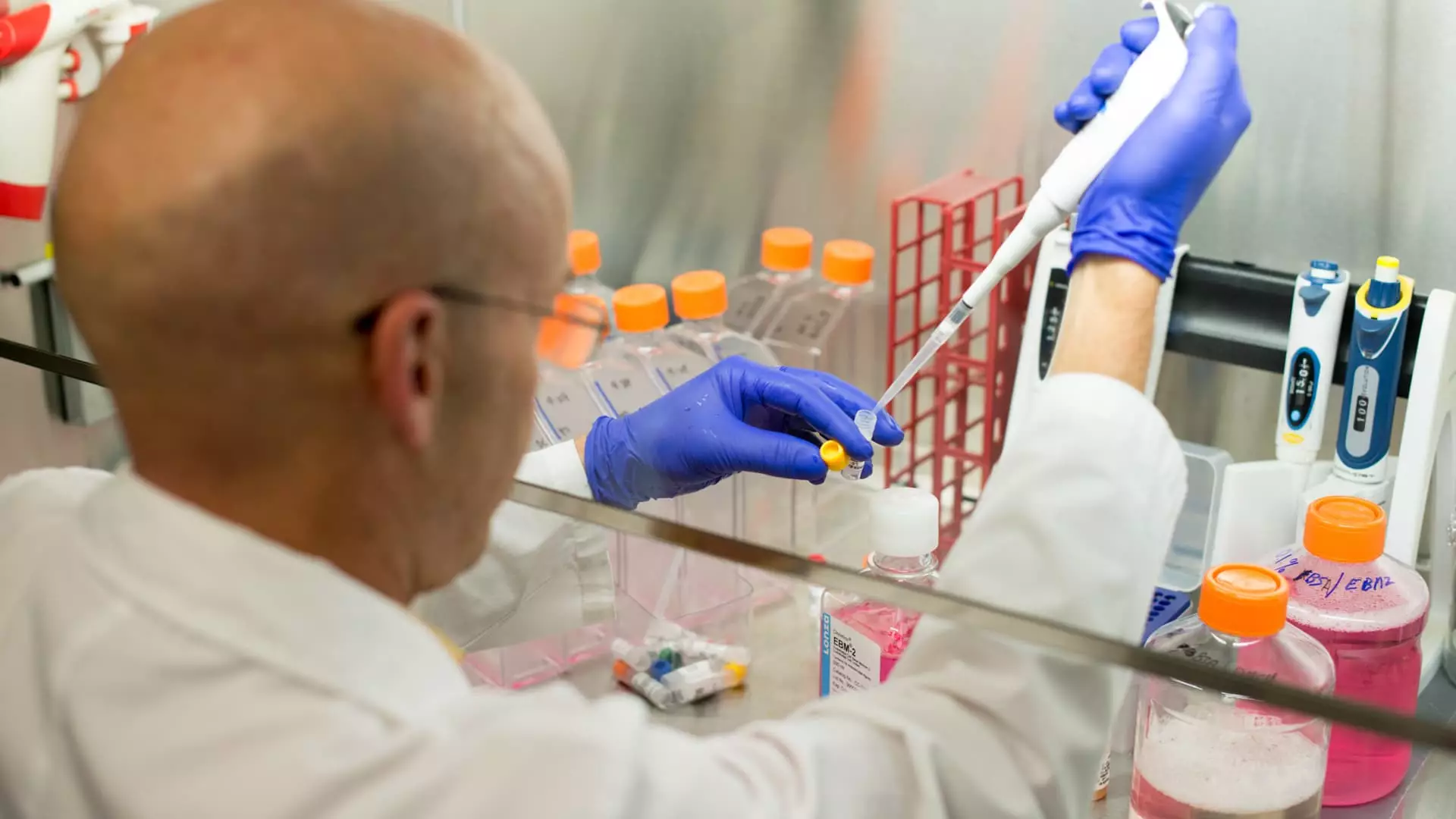Recursion Pharmaceuticals has recently reached a significant milestone by advancing its experimental treatment for solid tumors and lymphoma through a groundbreaking, artificial intelligence-driven drug discovery process. This achievement marks an important moment not just for the company, but also for the burgeoning techbio industry which seeks to redefine drug development through innovative technologies. By harnessing vast datasets in biology, Recursion has demonstrated the potential of AI to expedite timelines for bringing new therapies to market, ultimately providing hope for thousands of patients facing challenging cancer diagnoses.
On Wednesday, the United States Food and Drug Administration (FDA) granted an investigational new drug application for Recursion’s candidate, identified as REC-1245. This approval allows the company to initiate Phase 1/2 clinical trials, with the aim of evaluating the safety and tolerability of the drug. The company anticipates beginning these trials in the fourth quarter of the year, and hopes to conclude the initial phase of the study by the end of the following year. The potential impact of REC-1245 is substantial, with an estimated market that can cater to more than 100,000 patients across the U.S. and European Union.
The drug targets RBM39, a novel biologic marker believed to have similarities with the notoriously elusive CDK12, which plays a critical role in various advanced cancers, including those affecting the ovaries, prostate, breast, and pancreas. The strategic targeting of RBM39 could present a new avenue for patients who are unresponsive to existing therapies, providing critical options in an area where efficacy is frequently challenging.
Recursion CEO Chris Gibson has expressed enthusiasm over the company’s ability to merge massive biological data with advanced AI tools, comparing the process to an expansive Google search across a vast biological landscape. This innovative approach, which spans over eleven years in development, distinguishes Recursion from traditional drug development methods, which often involve cumbersome trial-and-error processes. The efficacy of this AI-driven approach could significantly reduce the time and financial burden associated with the drug development cycle, thus propelling medical advancements.
Despite the promises of AI in revolutionizing drug discovery, skepticism persists. Investors have looked for tangible results that confirm the extensive hype surrounding this technology. 2024 has seen Recursion’s stock decline by 38%, which raises questions about the company’s ability to meet investor expectations despite its groundbreaking endeavors. Currently, Recursion’s stock sits at more than 60% lower than its 52-week high, reached in late February.
To bolster its standing, Recursion is strategically merging with its fellow AI-drug discovery firm, Exscientia. This collaboration is anticipated to create synergy in data integration that could yield enhanced drug discovery capabilities. The expected completion of this deal in early 2024 could pave the way for Recursion to refine its methodology, optimize its pipeline of drug candidates, and ultimately better serve patients in desperate need of novel cancer treatments.
Although present assessments of Recursion’s stock remain largely neutral, analysts recognize the company’s transformative potential. Two analysts have issued buy ratings, which hints at a cautiously optimistic outlook among certain market experts. The average target price for Recursion’s shares stands at $10.14, suggesting an enticing potential return of 64% based on current valuations.
Recursion Pharmaceuticals exemplifies the transformative potential that AI holds for drug discovery and cancer treatment. As the company prepares for forthcoming clinical trials of REC-1245 and embarks on a partnership with Exscientia, stakeholders remain alert to the performance and progress of these initiatives. With AI paving the way for unprecedented speed and efficiency in drug development, patients may soon benefit from new treatment options that were unimaginable just a few years ago. The landscape of oncology treatment is evolving, and Recursion is at the forefront of this remarkable revolution.

